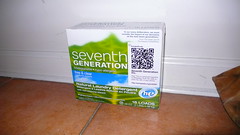Energy Can Fuel The Economy!
For two months in a row, the jobs report has gotten better. I don’t know about you, but I have been wondering what’s behind the sudden turn around? Then it occurred to me a few days, after last months jobs announcement, that there seemed to be a NEW secret, that most of the rest of the nation didn’t know about. Energy can fuel the economy!
I saw this story on the news (NBC), about three days after last months jobs report. You may have thought that America’s shale oil and gas boom couldn’t get any bigger than the one made public in the Bakken formation, of North Dakota. If you haven’t heard of that, well, they have been Bringing Home the Bacon From The Bakken for about three years now.
But NOW, according to the U.S. Geological Survey (USGS) estimates, there is a a newly-emerging shale deposit that most likely contains about 38 trillion cubic feet of undiscovered natural gas, about 940 million barrels of oil, and nine million barrels of natural gas liquids such as, ethane and propane. It’s simply huge, and a very rich and shallow deposit.
It’s called the Utica Shale formation. The USGS, provided its first assessment of the Utica shale deposit, recently(about three weeks ago). It found the reserve, which lies underneath the Marcellus shale play, to potentially contain the deposits and massive reserves mentioned above. The fields are part of the Appalachian Basin, which the USGS has said is the longest-producing petroleum play in the United States.

Rectangular joints in siltstone and black shale within the Utica Shale (Ordovician) near Fort Plain, New York. (Photo credit: Wikipedia)
“Understanding our domestic oil and gas resource potential is important, which is why we assess emerging shale plays like the Utica, as well as areas that have been in production for some time,” Brenda Pierce, USGS energy resources program coordinator, said in a statement.
Anadarko Petroleum, one of the more active energy companies in Ohio, claims to have already delivered 9,500 barrels of crude oil and 12 million cubic feet of natural gas from one well in the Utica shale play.
DTE Energy, a Michigan utility company signed a memorandum of understanding in September, with Canadian pipeline company Enbridge and natural gas infrastructure company Spectra Energy Corp. The agreement calls for the development of about 250 miles of pipeline meant to carry as much as 1 billion cubic feet of natural gas PER DAY, from the Utica shale play in Ohio. So, it seems that there will be jobs working on and building this pipeline.
As oil and gas drilling production in this newly found formation picks up speed, it could become the third-largest deposit in the United States. The Marcellus and Utica shale deposits have the potential to greatly improve the economies of eight states, and set us on the path to energy independence within 15 years.
Massive oil and gas development
For investors, these areas are where energy companies are scrambling to get a piece of the action. No, we haven’t really heard much on the topic, but this has been a relatively quiet secret for the last 2 1/2 years. During this time frame, the big oil and gas producers such as BP (NYSE: BP), Chevron (NYSE: CVX) and ExxonMobil (NYSE: XOM) are already getting more involved in these areas, setting the stage and digging in their claws. All of this has been going on for about the same amount of time as the North Dakota boom.
But the most active driller currently in Ohio, is a Chesapeake Energy (NYSE: CHK).
They are Utica Shale’s top energy stock holder. Over the last few years years, Chesapeake Energy, has quietly acquired more than one million acres in the Utica Shale deposit, with a total of 87 wells, in operation. That is more than any other energy company investment, at this time. In Ohio, they are considered the No. 1 player that is currently in the best position, to gain from the area’s growing Utica Shale exposure.
When I was a child, the common thing was to head West to find good paying jobs. That is what my family did. Now, if you need a job, head East! While there is a plus side to all of this, it has greatly changed many quiet rural farming communities. Fracking(breaking apart the shale to release the gases) is still part of the extraction process. The best thing about the shale in these newer formations, is that it is much closer to the surface, than in the Bakken (Williston, N.D.) region. It is good to know we are moving and working toward better and greener tomorrows.




















